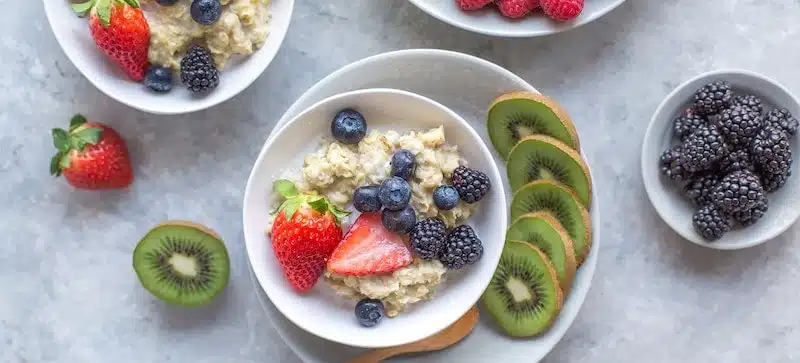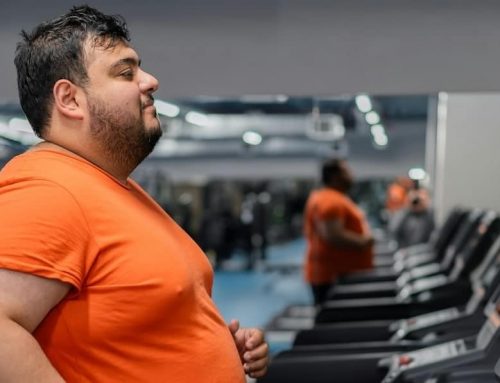
Unite Fitness Retreat Nutrition Principles
Unite Nutrition Plan, By Unite Fitness Retreat Dietician, Brooke Bouwhis
Our approach to nutrition sets us apart from other weight loss retreats and fitness camps, our goal is for you to return home with less anxiety about food coupled with a fresh approach about what will fuel, satisfy, heal and help your body lose weight.
If you feel irritable, weepy, extremely hungry, extremely tired, unable to concentrate, you are UNDER eating and that will sabotage your progress. Eating too few calories will slow your metabolism and keep you from losing weight. That is NOT our goal.
Eating in a pattern that will balance your exercise output with your caloric intake while creating a reasonable deficit in order for weight loss to occur is a very individual process. If you need more it will be offered. If you think you need to eat less, we will discuss and assess your situation on an individual basis.
Food shaming is not allowed, period.
We are all as individual as snowflakes in a blizzard. Even if we step on the scale and are the same number, we have very different needs.
The calories you require depend on many factors; how many diets you have been on, how much muscle mass you have, your age, gender, genetics, hormones, medications, and even the types of bacteria in your intestines. There are even more factors beyond this list that add to the complexity of the situation.
Let us repeat, there is no food shaming at camp. We bring this up because every journey is unique and individual needs vary. We need you to do what is best for you to see the best results for you.
We will provide you with the option of having more if you need more. For example, extra greens to add to your morning protein shake, lunch or dinner. Additional protein to ensure you are not losing muscle mass as you participate in all aspects of camp. Easy, amazing solutions you can use at home to continue your success.
Starving you and exercising you to death is not how we get results. We want to personalize what you need in order to get the results you are working so hard for.
The Hunger Scale
How do I know if I am hungry? We know it sounds weird but in our culture of enormous portion sizes and hence calories, we are eating more than we need. Learning you may need less than what you are used to and can be satisfied with less will take some work mentally and emotionally.
Referring to a hunger scale helps you rate if you could eat the side off a building or your if are so full you could burst. We help you get back in tune with your true hunger needs. We want you to be between a 4 (a little hungry) and a 7 (full) when meals and snacks take place.
How do you know where you are? Use the following scale to rank your hunger before you eat.
Stop halfway through your meal and rank it again. This process will help you better judge how much more to eat and how satisfied you are.
We focus on 4 main nutrition principles at Unite Fitness Retreat:
- Balance of protein, carbohydrate and fat
- Small meals and snacks
- Frequent eating throughout the day
- Mindful eating
1. Balance Protein, Carbohydrate & Fat
The words “blood sugar” aren’t new to you but you know keeping your blood sugar within normal range is important. Eating small frequent meals that are balanced with protein, carbohydrate (especially fiber) and fat will keep your blood sugar in better balance. When eating protein, carbohydrate (fiber) and fat during the same eating occasion, intestinal motility is slowed down. When intestinal movement slows carbohydrate is absorbed slower which keeps your blood sugar from spiking and dropping in one fail swoop.
This is also known as the insulin response. As we balance the insulin response it reduces hunger, helps burn fat and decreases fat storage. Insulin is an anabolic hormone – it loves to build. Insulin doesn’t build muscle, when there is too much insulin that has been released because there is too much sugar or glucose in the blood, it turns excess sugar into fat.
The purpose of understanding and practicing the Unite Nutrition Principles is to enable you with the ability to recognize and reproduce a healthy eating pattern when you go home. Whether it’s an office party, lunch with friends or in your own home these principles will help keep you on track and be successful with your health and fitness goals.
- Balanced meals– your body needs protein, carbohydrate and fat to function properly.
- Carbohydrates– their primary role is to provide you with energy. The brain and the nervous system prefer to use carbohydrate for an energy source. There are crappy, heavily processed carbs like candy, cakes, sugar sweetened beverages which are inflammatory and damaging to the body even though they taste so good. Complex carbs are whole fruits, whole grains and vegetables. You may see fruit, vegetables, tortillas, whole grain bread and oats among other foods that are carbohydrates.
- Protein– the role of protein is to build and repair tissue. Protein keeps you full longer and helps maintain blood sugar throughout the day. You may see protein sources like bone broth protein powder, eggs, turkey bacon, Greek yogurt, cottage cheese, nuts, nut butters, chicken, fish, turkey and bison.
- Fats– such a misunderstood nutrient! We need fat in our diets, we need it aid in the absorption of essential nutrients and it helps you feel full longer. See, being satisfied with what you are eating is critical! Some fats you may see are avocado, nuts, seeds, nut butters, meat, cheese and oils.
Think half your plate veggies, a palm sized portion of protein, a handful of whole grain and a thumb of healthy fats. This is the basis of an exceptional way of eating to fuel your body for success.
Your metabolism will improve as you exercise, lift weight and eat small frequent meals. Did you know drinking plenty of water helps too? Even mild dehydration can cause your metabolism to slow down.
To really get your day started right, fill a glass with 1-2 cups of water before bed. Place that cup at your nightstand or your bathroom sink. First thing in the morning, drink up. It will lift the fog from your bed head, hydrate your skin and hydrate your intestines which is code for getting things moving. Trust us, this is a habit you can do that doesn’t cost you anything but without a doubt you will see a difference in how you feel!
2. Small Meals
The purpose of small meals and snacks is to provide your body with ONLY the amount it needs and can handle at one time. When you have a small meal, the body will burn those calories and will be less likely to store it as fat.
Protein, fat and fiber increase feeling of satiety. When you are satisfied you crave less and when you crave less you can focus your energy towards building healthy habits.
- Portion control– each meal is portioned out for you in the correct size and combination of carbohydrate, protein and fat. As a rule of thumb each meal contains 45-55% carbohydrate, 30-40% protein and 20-30% fat. This ratio allows for enough energy for your body to thrive coupled with enough protein to ensure adequate protein for muscle development and recovery.
We live in an environment of unhealthy portion sizes which promote a perceived value. More is better is what we are taught with marketing. When it comes to changing habits and achieving weight loss goals, quality and quantity count. Pay attention to portion sizes. When using the hunger scale, you will see a smaller portion is more satisfying than what you once thought.
3. Frequent Eating
Eating increases metabolism. Starting with a morning meal to rev your metabolism and eating mindfully throughout the day will keep it going.
- Timing—every 2-3 hours you will be provided with a meal or a snack to eat. Fueling your body continually throughout the day will help you maintain you blood sugar levels, keep you from starving and keep you from overeating. Please keep in mind we are NOT in the game of starving you to death, if you need more, we will provide you with additional healthy balanced calories.
4. Mindful Eating
- Eating slowly and without distraction.
- Listening to physical hunger cues and eating only until you’re full.
- Distinguishing between actual hunger and non-hunger triggers for eating.
- Engaging your senses by noticing colors, smells, sounds, textures and tastes.
- Learning to cope with guilt and anxiety about food.
- Eating to maintain overall health and well-being.
- Noticing the effects food has on your feelings and figure.
- Appreciating your food.







